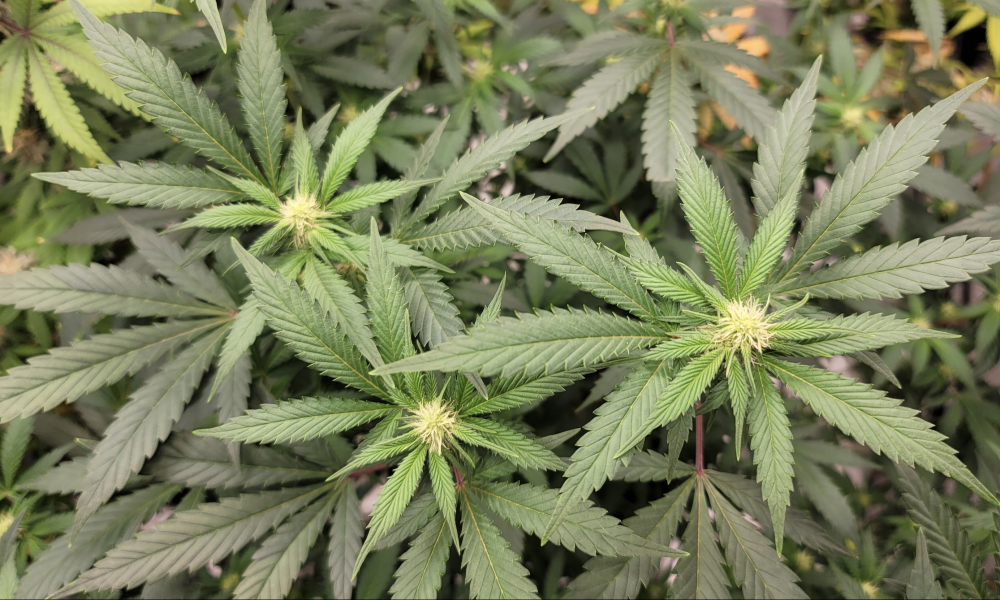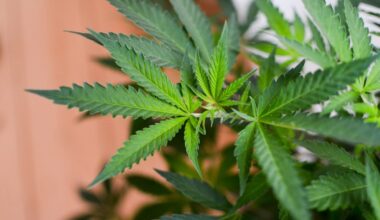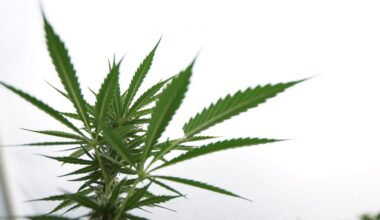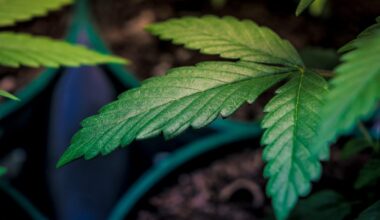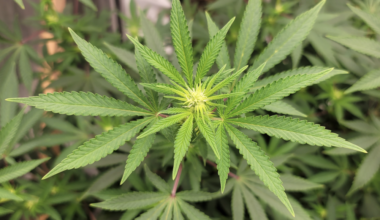Pennsylvania senators on Tuesday heard testimony on a bill to protect medical marijuana patients from being prosecuted under the state’s “zero tolerance” DUI laws.
Health professionals, lawyers and law enforcement officials spoke before the Senate Transportation Committee, highlighting the unique complications that cannabis patients and police face under the current statute and the constitutionality of the proposed reform.
The legislation, sponsored by Sen. Camera Bartolotta (R), would amend state law to require proof of active impairment before a registered patient could be prosecuted for driving under the influence. The current lack of specific protections for the state’s roughly 368,000 patients puts them in legal jeopardy when on the road, supporters say.
“Unfortunately, Pennsylvania’s zero tolerance DUI law does not contemplate the difference between medicinal and recreational use of marijuana,” Bartolotta told committee members at the hearing. “Because of this, unimpaired patients currently face the risk of being arrested, prosecuted and convicted for using medicinal marijuana that has no bearing on their ability to drive a vehicle.”
My remarks from today’s Senate Transportation Committee regarding my legislation that would update Title 75 to ensure legal medicinal cannabis patients who are unimpaired do not receive a Driving Under the Influence (DUI) conviction.
Full story: https://t.co/YDJwcLgdUn
— Senator Bartolotta (@senbartolotta) September 21, 2021
While many other medical cannabis states require proof of impairment or have set per se THC limits for driving, Pennsylvania maintains a zero tolerance policy for marijuana.
Patrick Nightingale, a criminal defense attorney who is also part of the reform organization Law Enforcement Action Partnership, explained to the committee that the current law makes it so people can be prosecuted for having cannabis metabolites present in their system while driving. That’s troubling, he said, because those compounds can be present for weeks after a person ingests marijuana, and it does not prove active impairment.
He said that while everyone agrees that medical cannabis patients shouldn’t be given a free pass to drive while intoxicated on marijuana, the proposed bill would simply align the state’s policy with the science and provide necessary protections for patients.
“I’m very encouraged that Senator Bartolotta was willing to step up on behalf of Pennsylvania patients. We have been struggling for over two years to get some traction on DUI reform bills,” Nightingale told Marijuana Moment. He added that he feels confident that, because the sponsor is part of the legislature’s majority party, the bill will move through committee and ultimately become enacted.
The legislation would essentially make it so medical cannabis would be treated the same by law enforcement as Schedule II and III drugs such as prescription opioids and anti-anxiety medication.
—
Marijuana Moment is already tracking more than 1,200 cannabis, psychedelics and drug policy bills in state legislatures and Congress this year. Patreon supporters pledging at least $25/month get access to our interactive maps, charts and hearing calendar so they don’t miss any developments.![]()
Learn more about our marijuana bill tracker and become a supporter on Patreon to get access.
—
“This, in my opinion as a criminal defense attorney, activist and medical cannabis patient, is the most pressing issue facing our 350,000 plus medical cannabis patient population,” Nightingale said.
Paul Armentano, deputy director of NORML, submitted written testimony to the committee.
“Zero tolerance DUI prosecutions and convictions without proof of actual impairment and reliance on non-psychoactive metabolites is unscientific and without any rational support,” he said, adding that even per se THC limits for drivers that have been imposed in other states are unscientific attempts to address the issue without recognizing the complex pharmacokinetic properties of cannabis and its effects on consumers.
Members of the committee did not vote on the proposal on Tuesday, but the hearing sets the stage for later action.
Another bill we’re discussing is SB 167, which would require proof of intoxication for a medical marijuana patient who is given a DUI. Right now, PA’ans with medical marijuana prescriptions can be at risk of losing their licenses for using medication prescribed by a doctor.
— Senator John Kane (@SenatorJohnKane) September 21, 2021
Bartolotta first introduced an earlier version of her bill in June 2020. She said at the time that the state needs to “ensure that the legal use of this medicine does not give rise to a criminal conviction.”
Months after the standalone reform legislation was introduced, the Pennsylvania House approved a separate amendment that would enact the policy change.
Pennsylvania legalized medical marijuana in 2016, with the first dispensaries in the state opening in 2018. But the state’s zero-tolerance DUI law still doesn’t reflect those changes.
“Unimpaired patients currently face the risk of being arrested, prosecuted and convicted for using medicinal marijuana that has no bearing on their ability to drive a vehicle,” the senator wrote in a cosponsorship memo late last year. “Given the very serious consequences of a DUI conviction, my legislation will provide critical protections for medicinal cannabis patients by ensuring responsible use of their legal medicine does not give rise to a criminal conviction.”
Witnesses who testified on Tuesday emphasized that evidence isn’t clear on the relationship between THC concentrations in blood and impairment.
The #PASenate Transportation Committee received testimony during a hearing on my #SB167 which would update Title 75 to ensure legal medicinal cannabis patients who are unimpaired do not received a DUI conviction. @PASenateGOP @SenLangerholc https://t.co/UufWjRjVvi
— Senator Bartolotta (@senbartolotta) September 21, 2021
A study published in 2019, for example, concluded that those who drive at the legal THC limit—which is typically between two to five nanograms of THC per milliliter of blood—were not statistically more likely to be involved in an accident compared to people who haven’t used marijuana.
Separately, the Congressional Research Service in 2019 determined that while “marijuana consumption can affect a person’s response times and motor performance… studies of the impact of marijuana consumption on a driver’s risk of being involved in a crash have produced conflicting results, with some studies finding little or no increased risk of a crash from marijuana usage.”
Outside of this bill, Pennsylvania lawmakers have continued to pursue adult-use legalization in the state. Earlier this year, two legislators circulated a memo to build support for a comprehensive reform bill they plan to introduce, for example.
A bipartisan Senate duo is also in the process of crafting legislation to legalize cannabis across the commonwealth. They announced some details of the proposal earlier this year, but the bill has yet to be formally introduced.
Outside the legislature, Gov. Tom Wolf (D) said earlier this year that marijuana legalization was a priority as he negotiated the annual budget with lawmakers. However, his formal spending request didn’t contain legislative language to actually accomplish the cannabis policy change.
Wolf, who signed a medical cannabis expansion bill in June, has repeatedly called for legalization and pressured the Republican-controlled legislature to pursue the reform since coming out in favor of the policy in 2019. Shortly after he did that, a lawmaker filed a separate bill to legalize marijuana through a state-run model.
Lt. Gov. John Fetterman (D), who is running for U.S. Senate, previously led a listening tour across the state to solicit public input on legalization. He’s credited that effort with helping to move the governor toward embracing comprehensive reform. The lieutenant governor even festooned his Capitol office with marijuana-themed decor in contravention of a state law passed by the GOP-led legislature.
Fetterman has also been actively involved in encouraging the governor to exercise his clemency power for cannabis cases while the legislature moves to advance reform.
In May, Wolf pardoned a doctor who was arrested, prosecuted and jailed for growing marijuana that he used to provide relief for his dying wife. That marks his 96th pardon for people with cannabis convictions through the Expedited Review Program for Non-Violent Marijuana-Related Offenses that’s being run by the Board of Pardons.
Overall, legalization is popular among Pennsylvania voters, with 58 percent of residents saying they favor ending cannabis prohibition in a survey released in April.
Another poll released in May found that a majority of voters in the state also support decriminalizing all currently illicit drugs.
Photo courtesy of Mike Latimer.
Medical Disclaimer:
The information provided in these blog posts is intended for general informational and educational purposes only. It is not a substitute for professional medical advice, diagnosis, or treatment. Always seek the advice of your physician or other qualified healthcare provider with any questions you may have regarding a medical condition. The use of any information provided in these blog posts is solely at your own risk. The authors and the website do not recommend or endorse any specific products, treatments, or procedures mentioned. Reliance on any information in these blog posts is solely at your own discretion.
